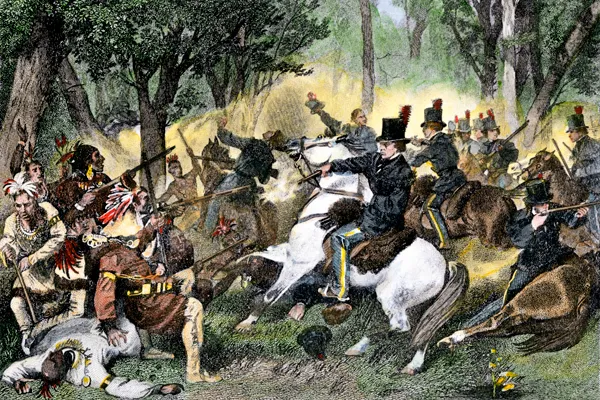nagoyasuzukiamerica.com – Canada’s military history is a tapestry of bravery, sacrifice, and resilience, woven through centuries of conflict and peacekeeping. From the early battles of the War of 1812 to the complexities of modern warfare, Canadian soldiers have played a significant role on the world stage. This history is a testament to the country’s commitment to peace, freedom, and the defense of democratic values.
The War of 1812: A Defining Moment
The War of 1812 was a pivotal event in Canada’s military history. It was a conflict that pitted the British Empire and its Canadian colonies against the United States. Although the war ended with no significant territorial changes, it solidified a sense of Canadian identity and independence from the United States. Key battles such as the Siege of Fort Erie and the Battle of Queenston Heights demonstrated the valor of Canadian militia and British forces.
The World Wars: A Time of Sacrifice
The 20th century brought two world wars that would profoundly impact Canada and its military. During World War I, Canadian forces distinguished themselves in battles such as Vimy Ridge and Passchendaele, earning a reputation for tenacity and skill. The war was a crucible for the Canadian Expeditionary Force, forging a sense of national pride and unity.
World War II saw an even greater mobilization of Canadian forces. The country played a crucial role in the Allied effort, contributing troops, equipment, and resources. The Battle of the Atlantic, the Dieppe Raid, and the D-Day landings at Juno Beach were defining moments for Canada on the global stage. The war effort was a monumental undertaking that saw Canadians from all walks of life contribute to the cause.
The Cold War and Peacekeeping
The post-World War II era was marked by the Cold War, a period of tension between the Western bloc, led by the United States, and the Eastern bloc, led by the Soviet Union. Canada was a member of NATO and played a role in the defense of Western Europe. However, Canada also became known for its contributions to United Nations peacekeeping efforts, with Canadian soldiers serving as peacekeepers in various conflict zones around the world. Lester B. Pearson, a Canadian diplomat and future Prime Minister, was instrumental in establishing the concept of UN peacekeeping.
Modern Conflicts: Adaptation and Innovation
In recent decades, Canada’s military has adapted to the changing nature of warfare. The Canadian Forces have been involved in various conflicts and peacekeeping missions, including the Gulf War, the Balkans, Afghanistan, and more recently, operations against ISIS. These engagements have required flexibility, technological innovation, and the ability to work within international coalitions.
The Afghan mission, in particular, was a significant undertaking for Canada. From 2001 to 2014, Canadian soldiers were involved in combat operations, training Afghan security forces, and providing humanitarian aid. The mission was a complex and challenging endeavor that showcased the professionalism and adaptability of the Canadian Forces.
Legacy and Future Challenges
Canada’s military history is a source of national pride and reflection. It is a reminder of the sacrifices made by those who served and the importance of a strong, capable military in a rapidly changing world. As Canada looks to the future, it faces new challenges, including cyber warfare, hybrid threats, and the need for continued peacekeeping efforts. The Canadian Forces will need to continue to adapt and innovate to meet these challenges while upholding the values of peace, freedom, and democracy that have defined Canada’s military legacy.
In conclusion, Canada’s military history is a rich and complex narrative that reflects the country’s evolution from a collection of British colonies to a sovereign nation with a respected military presence on the global stage. From the War of 1812 to modern conflicts, Canadian soldiers have demonstrated courage, resilience, and a commitment to peace and security. As the world continues to change, Canada’s military will undoubtedly play a vital role in shaping the future, both at home and abroad.
